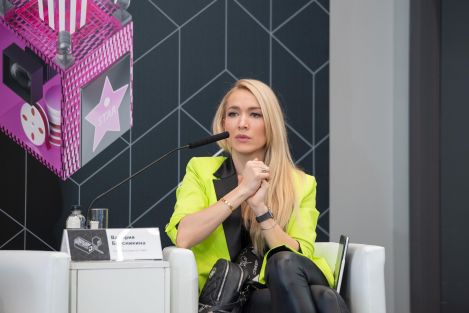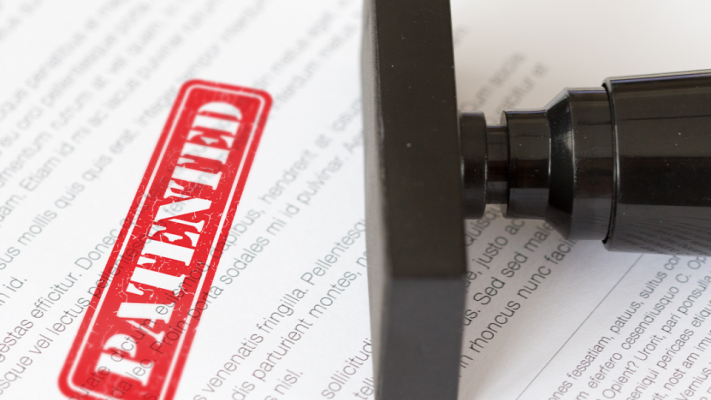
Valeria Brusnikina, manager of the IT projects portfolio of the IPChain Association, answers questions from foreign media
News

15 January 2021
The largest owner and researcher of patent data for the United States and other countries, the American company IFI Claims Patent Services has published an annual ranking of the top 50 innovative companies and the top 10 countries in terms of intellectual property rights under United States jurisdiction. The data allows experts to analyze which technologies are developing faster than others, and which are stagnating instead. Igor Osipov, the Chairman of the Digital Science Holding in Russia, Eastern Europe and the CIS spoke about the interesting parts of these new ratings of inventions.
The United States is one of the largest markets for innovation, where the world's tech giants try to stake their claim. To understand how technologies will soon be transformed around the world, including in Russia, it is important to monitor the developments that are protected by intellectual property rights in this market. Let's analyze the popular technologies in IFI Claims' rating, which shows patent activity in 2020.
Biocomputers
Systems that copy biological models (the brain, intelligence, consciousness and genetic reproduction), or those systems that use physical material of biological origin (biomolecules, DNA, biological neurons and so on) as the basis for calculations. The calculations can be digital, analog, or chemical.
Back in 1994, it became clear that DNA can perform computational functions. Today, with the help of DNA chains, they are capable of encrypting information. One example of medical biocomputing is genetically modified cells or bacteria that, under certain conditions, activate a specific program and begin to synthesize different compositions of proteins, recognize other cells or edit genes.
From 2016 to 2020, the biocomputing field grew by an average of 67% annually. Calculations are made using a complex CAGR formula, but if we just look at raw figures, there were 675 patents registered in 2016, and 8,842 in 2020. In the next few years, we will be able to see these technologies in practice. Today's boom in DNA testing and diagnostics is associated with a large increase in the number of patents in 2018, when this field first rose to the top of the rankings.
Genetic modification of plants
Genetic modification technologies for plants are also in the top three. Specifically, breeding using bacteria will be tested on soybeans, legumes, corn, rapeseed and cotton, but the wording implies that the patent will not be limited to these crops. This will bring both benefits for businesses and challenges for consumers.
Quantum Leap
Quantum computing is developing, growing 41% year over year in the ratings. IBM is patenting hundreds of developments in this area—specifically, in trying to reduce interference in quantum chips. Google combines traditional and quantum principles in its chips. Using quantum computing, they calculate risks, model proteins to unravel viral and disease mechanisms, search for medicines and more.
Autopilots for cars and drone programs
These can be systems for monitoring the environment and the driver's physical condition, which can prevent the switch to autonomous (or, conversely, manual) control mode under certain circumstances. One leader is Ford, which is developing an adaptive driver assistance system. Intel is patenting a navigation system for autonomous vehicles so that they can see each other and navigate the environment. Neural networks will control the speed of the unmanned fleet.
Smart homes
Computing will become peripheral, and some of it will shift from data centers to end devices (edge computing), refrigerators, coffee makers, and the aforementioned types of "smart" transport. All these devices will communicate with each other, and owners will be able to control them from a smartphone, all while charging the device through a distributed wireless charging network.
Naturally, automation and the developed Internet of Things will speed the introduction of 5G and even 6G networks.
Delivery robots from Nvidia and an assistant from Ford
Some of the patents concern the automation of the environment using robots: for example, devices can work independently (without a control panel) in warehouse, agriculture, etc. Robots are taught to navigate independently in space, overcome obstacles and move in all directions.
Samsung recently introduced a robot butler that can pour wine. Ford has patented a robotic transport assistant that can carry luggage or small children. Nvidia is training autonomous vehicles to operate independently in the world using a reality simulated by neural networks: an entire courier fleet will be able to move autonomously, responding to traffic and emerging obstacles.
Entire niches will open up In the economy, creating new digital specialties in place of outdated ones that will then need to be mastered. It is not yet clear how quickly these changes will take place and what will happen to "classical professions" that automation is intended to replace, but given the current volume of patents and the number of applications, these new technologies are expected to be introduced within five to ten years.
3D printing
The rating highlights developments in the field of 3D printing, including on the industrial scale: parts for aircraft, airborne devices and so on. Boeing is finalizing powders for printing parts, and a sneaker manufacturer plans to print the bases for its shoes out of foam.
Anti-pandemic technologies
Developers are responding to the conditions created by the pandemic. We can't say that there is a significant increase in diagnostics patents, but these developments are still a top category. Methods for clinical and outpatient diagnosis of the virus are being patented, such as a way to independently determine the presence of the virus outside of laboratory conditions at room temperature. China has developed a system that can determine a person's identity, measure their temperature and disinfect, all in one step. Methods for the mass analysis of aerosol particles are also being patented.
There are fewer developments to combat climate change
Technologies to combat climate change have become slightly less visible, but they are still in the top 20. There were 10% fewer patents related to adverse climate impacts in the transportation field. Patenting declined by 2% and the use of technologies in the fight to reduce greenhouse gases (which is related to the production and transmission of energy) fell by 17%. Perhaps humanity got distracted by the pandemic. Or maybe we have reached the limit of technological development, and will only reap their benefits within the next several years.
Source: TASS